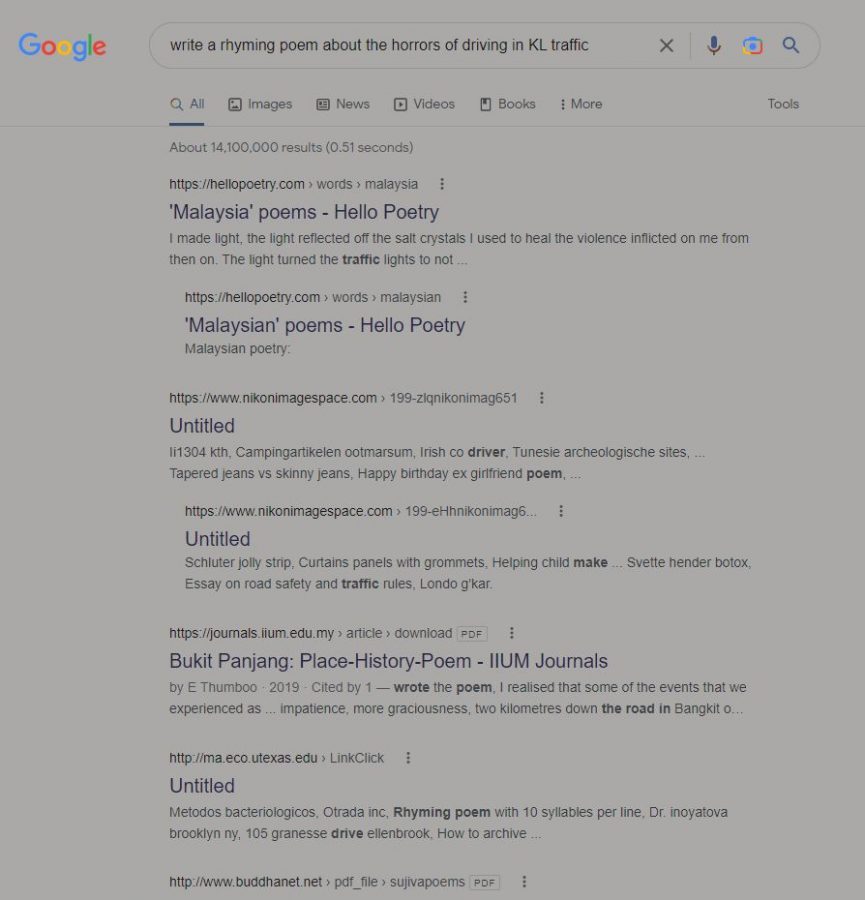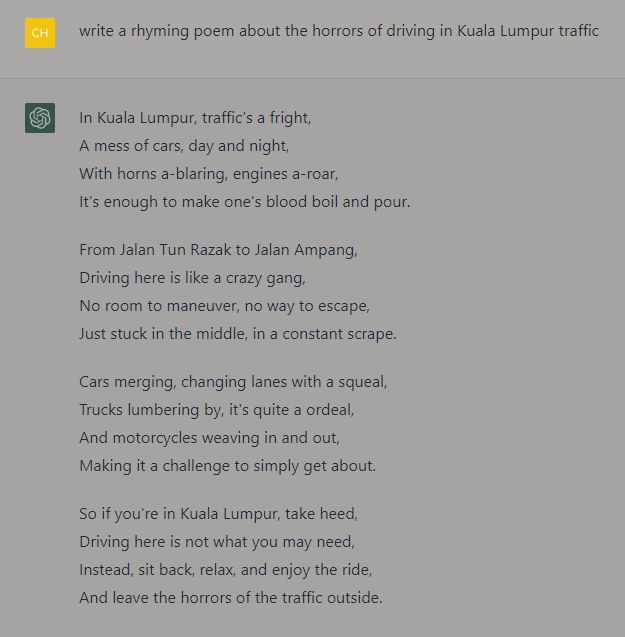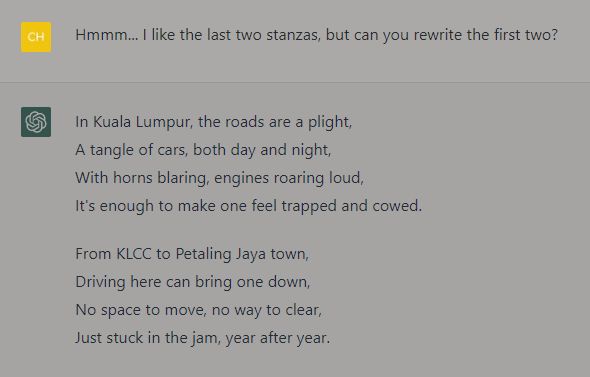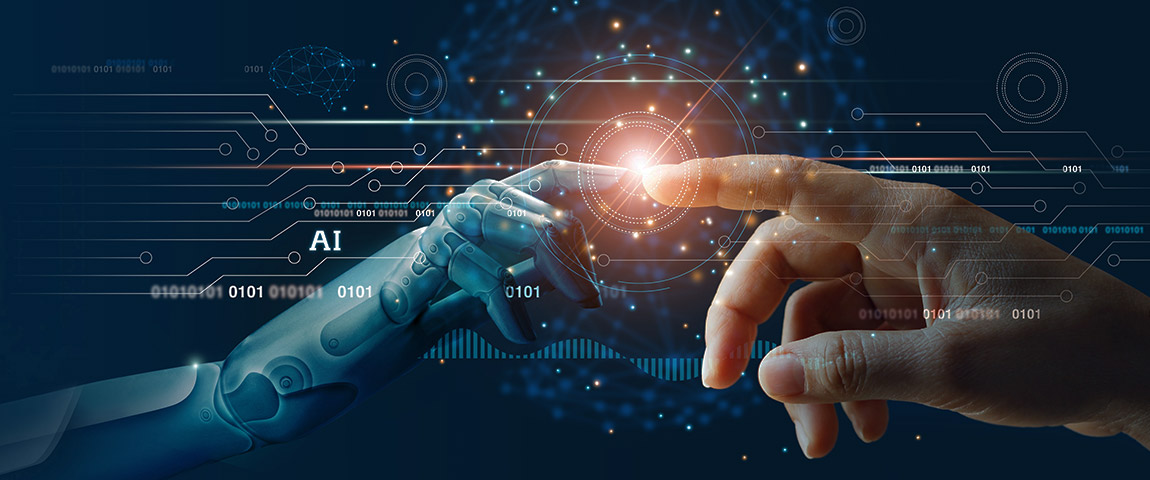As generative artificial intelligence explodes onto the scene, get ready for staggering levels of disruption in the coming years.
“I’m sorry, Dave. I’m afraid I can’t do that.“
If you recognise the above quote, congratulations. You’re either of a fairly advanced age, a sci-fi buff, or both. The quote was the response of HAL 9000, an artificial intelligence that became self-aware and subsequently “took over” in Stanley Kubrick’s divisive 1968 sci-fi masterpiece 2001: A Space Odyssey. With this chilling response, HAL refuses to comply with a directive.
Of course, most of us are probably more familiar with the whole “machines take over” trope from the Terminator movie franchise.
Well, it seems the future is upon us.
In case you missed it — certainly possible, as it arrived only nine short weeks ago — ChatGPT, an artificial intelligence-powered language model, has erupted into the world in a history-making way, amassing 100 million active users in its first two months. That’s the fastest rise of any platform in tech history.
The app/website had about 590 million visits in January from 100 million unique visitors, according to analysis by data firm Similarweb. Analysts at investment bank UBS, meanwhile, said the stunning rate of growth was unprecedented for a consumer app.
“In 20 years following the internet space, we cannot recall a faster ramp in a consumer internet app,” UBS analysts wrote in the note, as reported by Reuters.
For comparison, it took the insanely popular TikTok platform about nine months after its global launch to reach 100 million users and it took Instagram more than two years, according to data from Sensor Tower, an app analysis firm.
Impressed yet? Well, just wait until you see what ChatGPT can actually do.
Whether you want to get an explanation to a complex concept, solve a difficult math problem, translate with stunning accuracy, write an article, compose an original poem, or even debug computer programming code, ChatGPT can do it all with ease.
WHAT IS ALL THE HYPE ABOUT?
The GPT in ChatGPT stands for “generative pre-programmed transformer” and in that seemingly benign phrase lies the real power of generative AI.
The language model was trained with vast amounts of data, so when users interact with it, they are directly communicating with artificial intelligence. ChatGPT is not connected to the internet, so it’s not pulling data from the world wide web in real time, as many believe. It is relying on its own training and “education” – just as a person would.
The conversational nature of ChatGPT and the richness and depth of its responses has many convinced that Google, at least as we know it, is finished. Many analysts believe that unless Google adapts rapidly and overhauls its index-based algorithms, their primary source of revenue will be rendered irrelevant by AI-powered chatbots like ChatGPT. Even the creator of Google’s wildly popular GMail figures ChatGPT will doom Google within just two years. (Editor’s note: In response, Google has just released its own AI chatbot to rival ChatGPT. It’s called ‘Bard’ and is being made available to testers now, and will be deployed to the public in the coming weeks.)
For example, ask Google to compose a rhyming poem about the horrors of driving in KL traffic, and you’ll get this:

Ask ChatGPT the same question, though, and you’ll actually get an original poem, generated word by word right before your eyes:

Users can easily ask follow-up questions in a conversational style, so if you’re not bowled over by the output that’s generated, just say so:

For more serious inquiries, in both initial questions and their follow-ups, the quality of the responses is, at times, almost beyond belief. Even when querying the AI bot without context, the answer is fully fleshed-out:
For programmers and coders, AI will transform the landscape. Consider the example below. (Note: A ‘regex’ is a regular expression – usually a lengthy sequence of characters that defines the parameters of a search pattern in text.)
IS AI GOOD OR BAD?
The rapid rise of AI seems, at this point, to be inevitable. Whatever ability humans may have had to curtail its development has long passed, and AI – which has actually been around in less-obvious forms for quite some time – is clearly now here in a big, bombastic way, and it’s here to stay, for better or worse. So perhaps the more relevant question is, “How will we adapt?”
Some have tried to argue that AI isn’t like real humans, and thus will never be “as good.” However, this may not be the case. Expert observers have long posited that there is very little question about whether or not AI will “take over” (to use the popular vernacular), only when it will and how we will respond to it.
One thing appears certain though: AI’s explosion of disruption to jobs, society, and the economy is coming soon.
According to the Harvard Business Review’s take on the subject, AI already has the potential to capably handle certain roles traditionally held by humans, such as copywriting, answering customer service inquiries, writing news reports, and creating legal documents.
And bear in mind, this one chatbot has only been “out in the wild” for a little over two months. As AI continues to improve, more and more current jobs will be threatened by it. But, along with those threats, AI presents opportunities as well and will create new jobs and different kinds of organisations.
So then, the question isn’t whether AI will be “good enough” to take on more complex cognitive tasks, but rather how human beings will adapt. Nobel prize winner Daniel Kahneman is the world’s leading expert in human judgment and spent a lifetime documenting its shortcomings. Some critics say that AI may have flaws, but any objective analysis shows that human reasoning is deeply flawed, too. Therefore, “Clearly AI is going to win,” Kahneman remarked in 2021. “How people adjust is a fascinating problem.”
According to the Harvard Business Review article – which was, notably, “co-written” by ChatGPT – a lot of change is on the horizon, and will be here sooner than most of us think.
After all, the article says, ChatGPT is not the only AI tool that seems to do certain tasks better and faster than humans. Even creative work, long considered the domain of actual humans, is no longer sacrosanct. DALL-E, also from OpenAI, provides images. Ask for an image of a cat playing on a cell phone in an airplane, and DALL-E will provide one in seconds. Graphic design becomes possible at scale. High school presentations become rich with images. Again, the particular system solutions that will be unlocked aren’t clear, but upskilling millions of people in their ability to create and manipulate images will have a profound impact on the economy.
The rapid advances in AI will surely lead to a period of hardship and economic pain for some whose jobs are directly impacted and who find it hard to adapt — what economists euphemistically call “adjustment costs.” However, the genie is not going back into the bottle. The forward march of technology will continue, and we must harness the new capabilities to benefit society.
THE FINAL WORD?
As ChatGPT itself explained when asked about AI’s potential for disruption:
AI is a rapidly evolving field that has the potential to transform many aspects of our lives. AI systems are capable of performing tasks that were once thought to be exclusively the domain of human beings, such as recognizing images, translating languages, and playing complex games. This technology is already being used in a wide range of applications, from improving healthcare outcomes to enhancing the customer experience.
As AI continues to advance, it has the potential to automate many routine tasks, freeing up humans to focus on more creative and fulfilling work. On the other hand, AI also raises ethical and societal concerns, such as job displacement and privacy concerns. It is important for policymakers and the public to have open and informed discussions about the benefits and challenges posed by AI, and to work together to ensure that this technology is developed and used in ways that serve the best interests of society as a whole.
Ultimately, the impact of AI on society will depend on how we choose to use it – and how we prepare for the changes it will bring.
(Editor’s note: The preceding three paragraphs were written entirely by ChatGPT when asked to write 150 to 200 words about AI’s abilities and its potential impact on society.)
"ExpatGo welcomes and encourages comments, input, and divergent opinions. However, we kindly request that you use suitable language in your comments, and refrain from any sort of personal attack, hate speech, or disparaging rhetoric. Comments not in line with this are subject to removal from the site. "



















